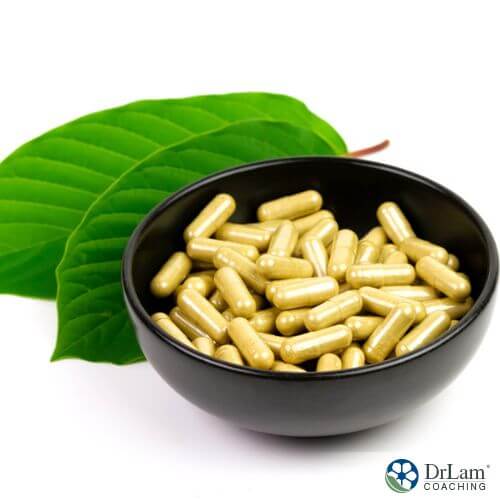Fewer drugs have stirred controversy in the United States over the last few years as much as kratom. But is it good? Is it bad? How safe is it? These questions have polarized so many groups, with people having different answers to the questions. However, we will consider the facts to see if the controversy surrounding the drug is justified.
 Kratom (Mitragyna speciosa) is a tree native to Thailand, Malaysia, Indonesia, and Papua New Guinea. However, the term kratom is generally used today to refer to all herbal supplements or drugs that are obtained from the plant. The active part of the kratom tree is the leaves, which have been used traditionally as a drug but have also found use as a recreational substance of late. Alkaloids mitragynine and 7-hydroxymitragynine are the compounds that have been identified as responsible for kratom’s effects.
Kratom (Mitragyna speciosa) is a tree native to Thailand, Malaysia, Indonesia, and Papua New Guinea. However, the term kratom is generally used today to refer to all herbal supplements or drugs that are obtained from the plant. The active part of the kratom tree is the leaves, which have been used traditionally as a drug but have also found use as a recreational substance of late. Alkaloids mitragynine and 7-hydroxymitragynine are the compounds that have been identified as responsible for kratom’s effects.
Over the last few years, there have different reported uses of kratom. Some have reported that the medication is useful as a stimulant and sedative, some use kratom for managing panic attacks, and indigenous Asian medicinal practitioners have used the medication as a substitute for opium. The use of the plant that seems to have stood out recently is as a management option for opioid withdrawal symptoms.
However, all of these reported uses have not been backed by scientific research. This has, in turn, led many health experts to question whether the drug is effective at all. Some even call for it to be banned commercially because of its reported risk of abuse. Still, the plant and its supplements remain very much in circulation.
While there have not been extensive studies into how kratom works in the body, health experts suggest that the active alkaloid compounds in the plant, mitragynine and 7-hydroxymitragynine, can act on opioid receptors.
Opioid medications on the market today also act on these opioid receptors. This implies that kratom can produce opioid- and stimulant-like effects. This may also justify the use of the plant in traditional Asian medicine as an opium replacement. However, the effects of kratom are significantly lesser than common opioids like morphine, heroin, and oxycodone.
As with most drugs, the effects of kratom vary depending on the amount an individual consumes, the concentration of the kratom product, the formulation of the product, other medications the individual may be taking, and underlying health conditions. Nonetheless, the following effects have been reported following kratom use:
Many proponents of kratom have claimed that it has several benefits for the body. However, there are few scientific studies to justify these claims. Notwithstanding, here are reasons people use kratom supplements.
Kratom contains bioactive alkaloids that studies show can activate the mu-opioid receptors. The compound from the leaves is mitragynine, which breaks down to 7- hydroxymitragynine in the body. The mu-opioid receptor is the primary receptor for the endogenous opioids beta-endorphin and enkephalins, which are critical in regulating the body’s response to pain.
Drugs activating this mu-opioid receptor can relieve pain, including morphine, codeine, fentanyl, oxycodone, and tramadol. While kratom is not nearly as potent or effective as these drugs in activating the mu-receptor, it can still activate the receptor. Therefore, theoretically, there should be some degree of pain relief with kratom use.
 At low doses, reports suggest kratom has stimulant-like effects. This implies that an individual that takes kratom can feel more alert and have higher energy levels. At higher doses, the individual may have a feeling of “high” or euphoria common with popular stimulant drugs like cannabis and amphetamines.
At low doses, reports suggest kratom has stimulant-like effects. This implies that an individual that takes kratom can feel more alert and have higher energy levels. At higher doses, the individual may have a feeling of “high” or euphoria common with popular stimulant drugs like cannabis and amphetamines.
As with pain relief, the stimulant effects of kratom are significantly less than these stimulant drugs. Although, this also means fewer side effects with kratom than with other more potent stimulant drugs.
A study in Thailand stated that people in Asia have been using kratom to manage opioid addiction for decades. However, research has not been able to evaluate how kratom can manage opioid addiction and dependence.
Considering the fact that many have used kratom for its stimulant effects, its use for anxiety and depression, operating on similar pathways, is understandable. Still, studies are ongoing to determine the complex pharmacological mechanisms to which many attribute these benefits.
In light of many of the reported benefits of this plant in managing several symptoms, as we can expect, it is also used in health conditions that have the same symptoms. A classic example is fibromyalgia, which is a condition that causes widespread pain in the body, sleep problems, tiredness, and mood disturbances.
Another example of a condition that many have turned to kratom to manage is Adrenal Fatigue Syndrome (AFS). This condition occurs when the body and adrenal glands cannot keep up with life’s chronic stressors. This usually results when there’s a dysregulation of the body’s in-built stress-coping mechanism, known as the NeuroEndoMetabolic (NEM) Stress Response.
The NEM system comprises six circuits spanning several organs and organ systems in the body. With chronic stress, one or more of these circuits may dysregulate, and if that happens for long, adrenal fatigue may result. Some of the symptoms of adrenal fatigue include lightheadedness, anxiety, pain in the upper back, need for coffee or stimulants, and lack of energy. Since kratom has been reported to be useful in managing these symptoms, some rely on it for managing adrenal fatigue and other conditions with these symptoms. However, those with adrenal fatigue should know that using kratom to boost energy will probably only be a short-term benefit and could actually have long term mal effects. Be very careful of overstimulating the adrenals with kratom as it could backfire very easily.
However, as is the consistent theme with kratom, there are no scientific studies to back its use in managing fibromyalgia, adrenal fatigue, and other related health conditions.
While kratom is illegal in parts of Europe, Australia, Japan, Thailand, and Malaysia, it is mostly legal in the United States. However, it is still illegal in six states (Alabama, Arkansas, Indiana, Rhode Island, Vermont, and Wisconsin).
Over the last few years, health professionals have become more reluctant to administer opioid and other psychoactive substances for managing health conditions. This is largely due to the addiction and dependence issues related to the use of these substances. Also, many of these substances have serious side effects and may be detrimental to the health of individuals that use them. The same concerns hold for kratom.
Between 2011 and 2017, poison control centers in the US noted about 1800 cases involving kratom use, with some resulting in death. Exposure in infants has also resulted in a withdrawal syndrome.
Below are some of the side effects associated with kratom use:
Overall, considering the lack of research on the plant, it is advisable to stay away from its use, especially when pregnant or managing other health conditions.
 Perhaps the primary reason for the controversies surrounding kratom is the lack of scientific research to back up the claims about its benefits. Not only that, but health experts believe that the risks and safety concerns of the plant outweigh any benefits it may possess. This has led many to call for the DEA (Drug Enforcement Agency) to classify the drug as a Schedule 1 drug, a class reserved for drugs with a high potential for abuse and no currently accepted medical use.
Perhaps the primary reason for the controversies surrounding kratom is the lack of scientific research to back up the claims about its benefits. Not only that, but health experts believe that the risks and safety concerns of the plant outweigh any benefits it may possess. This has led many to call for the DEA (Drug Enforcement Agency) to classify the drug as a Schedule 1 drug, a class reserved for drugs with a high potential for abuse and no currently accepted medical use.
The DEA considered scheduling the plant under Schedule 1 drugs, which would effectively mean it has little medical use outside of research work. However, the regulatory body held off on the move after public outcry. Nonetheless, the FDA has advised against the plant and its supplements, noting increasing harms associated with kratom use. The FDA even went on to state that the plant was implicated in 36 deaths in the country.
The reports from the FDA and the DEA's consideration of whether to make the drug illegal for medical use have amplified controversies around whether kratom should be commercially available. At the very least, many believe the plant should be a controlled substance.
Kratom is a herb native to Southeast Asia, traditionally used as an alternative to opioid use and for managing opioid dependence. Many also use herbs to manage health conditions like fibromyalgia, depression, and adrenal fatigue.
However, there is little scientific evidence on the reported benefits of kratom. Conversely, research has highlighted several risks and safety concerns associated with its use. Therefore, kratom use is generally discouraged. If you think you must use it, speak with your health practitioner first.
For more information about kratom supplements and safe alternatives, the team at Dr. Lam Coaching can help. We offer a free, no-obligation phone consultation at +1 (626) 571-1234 where we will privately discuss your symptoms and various options. You can also send us a question through our Ask The Doctor system by clicking here.
Despite the concerns of many about kratom, it is legal in most states in the United States. Only six states have a total ban on the supplement, although some cities in some states where the plant supplements are legal also have some type of control on the drug.
